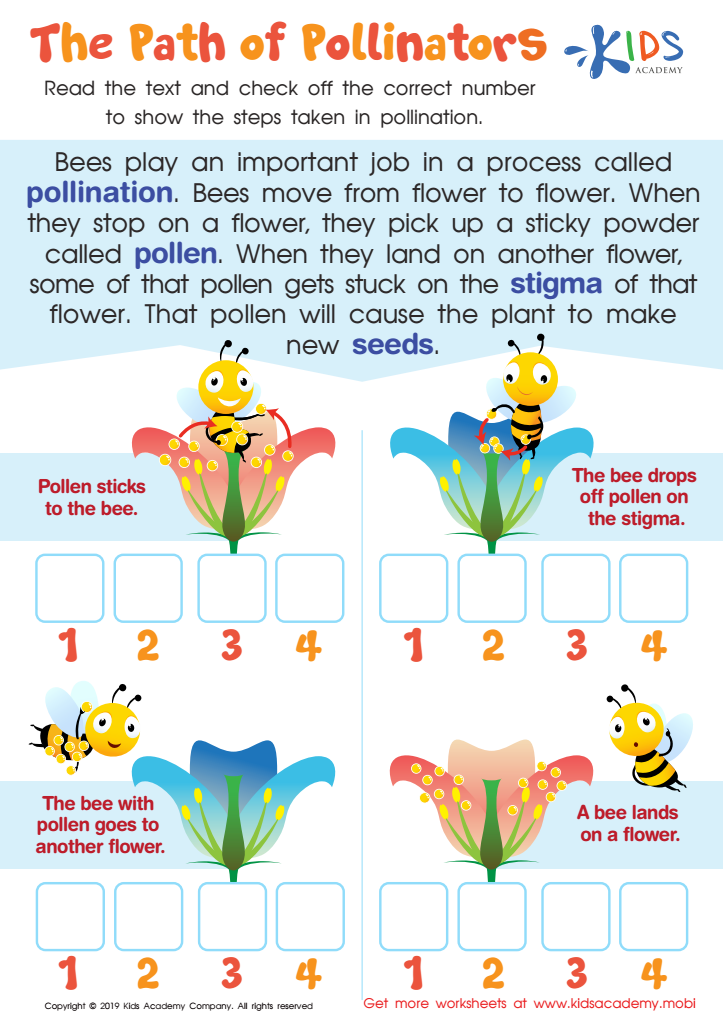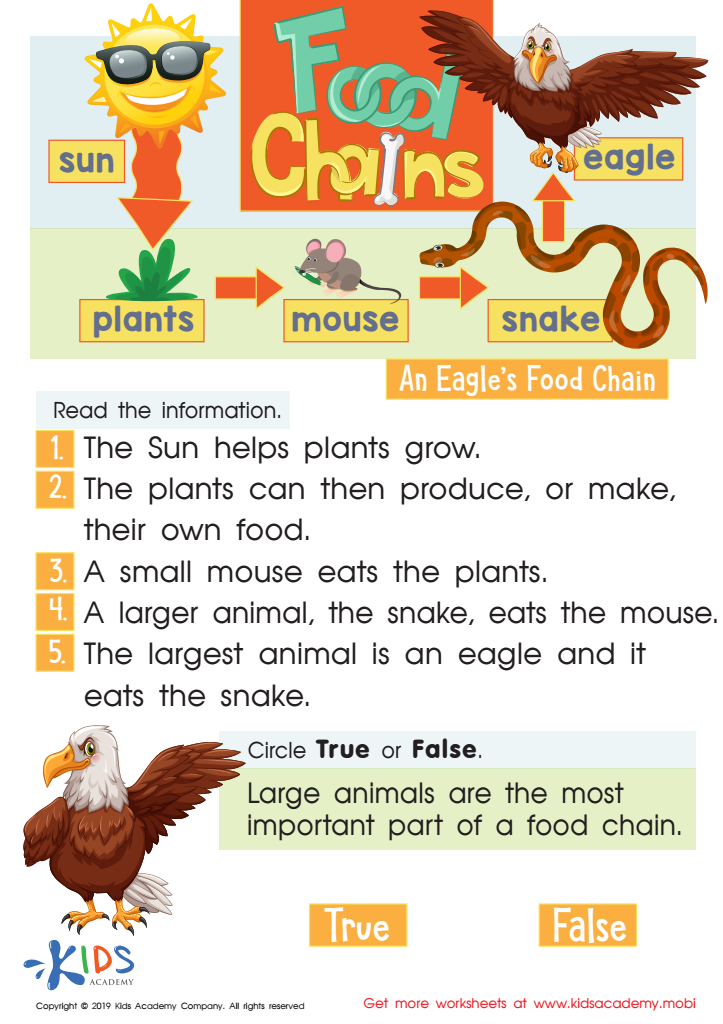Learning about ecosystems Normal Animals Worksheets for Ages 7-8
3 filtered results
-
From - To
Discover the fascinating world of ecosystems with our "Learning about Ecosystems: Normal Animals Worksheets" designed for ages 7-8. Packed with engaging activities, these worksheets help young learners explore how animals interact with their habitats, food chains, and environmental changes. Each worksheet is crafted by educational experts to build scientific curiosity and foundational knowledge in ecology. Perfect for classroom or home use, our worksheets include diverse exercises that encourage critical thinking, observation, and discussion. With colorful illustrations and fun facts, students will enjoy discovering the wonders of animal life within various ecosystems. Spark your child's interest in science today!


Pollinator Positions Worksheet


The Path of Pollinators Worksheet


Food Chains Worksheet
Learning about ecosystems and animals is essential for children aged 7-8 because it fosters a broad understanding of the world and cultivates a sense of responsibility towards nature. At this pivotal age, children’s curiosity about their surroundings is at its peak, and parents and teachers can harness this instinct for exploration to teach valuable lessons.
Firstly, exposure to ecosystems helps children comprehend how living organisms, including humans, are interconnected. By learning how animals depend on their habitats and each other for survival, children grasp the importance of environmental balance and biodiversity. This foundational knowledge can inspire a lifelong respect and care for the environment, making them more likely to engage in sustainable practices as adults.
Additionally, studying normal animals and their roles within ecosystems enhances critical thinking and observational skills. Children learn to notice details and ask questions, fostering scientific inquiry and curiosity. This is important in building problem-solving abilities and cognitive skills that are valuable in all areas of learning.
Moreover, understanding ecosystems can also nurture empathy. Realizing that animals have needs and behaviors akin to humans boosts emotional intelligence and sensitivity. Educational activities such as observing animals, maintaining classroom habitats, or even simple nature walks make learning interactive and enjoyable, cementing important concepts through experiential learning. Thus, educators and parents hold the key to developing informed, conscientious future stewards of the earth.
 Assign to My Students
Assign to My Students
















